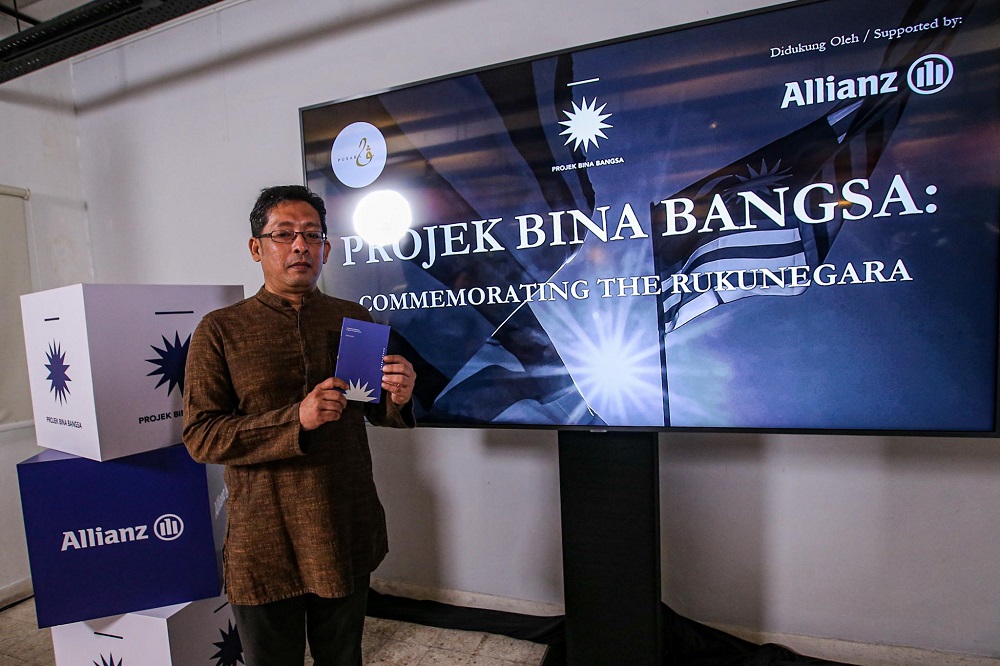KUALA LUMPUR, Sept 12 — Founder and director of Pusaka, Eddin Khoo said today that there is a need to look into how history is taught in schools in the country.
“Why history is uninteresting in our schools to young people?
“They are (instead) looking at history elsewhere and engaging with history but not through mainstream media.
“We need to look at how history is taught, what is alienating young people from history in schools but they go and find history in all other things,” said Khoo when met at the sidelines after launching his book, Rukunegara: A Brief Introduction by Pusaka in collaboration with Allianz Malaysia Berhad at Bookmark, APW, Bangsar.
The writer of the Rukunegara book cited several examples where other media including films or television series such as the Game of Thrones, animations in videogames, and even fictional books like Harry Potter has managed to draw young people’s attention.
“All these are based on history. So much of these are about the past.
“So it’s very hard to say that history is dead. In fact, I find more resurrection in history today in things like everything from Harry Potter to animations.
“People seem to be falling back on history. So don’t mistake the lack of interest in history to the lack of interest in history taught in schools,” he pointed out.
Khoo, who is the son of eminent historian, the late Tan Sri Khoo Kay Khim who was one of the drafters of the Rukunegara, also said he is hopeful that the first book of the 10-book-series by the Projek Bina Bangsa will be able to pave the way in reviving the identity of the national pillars and the country’s history.
“Like I said earlier, who remembers what it is today? Even the name, Rukunegara, is supposed to be one word, but then today, it has been broken up into two on its 50th anniversary.
“The Rukunegara name, is a nama khas (unique entity), why now it has become two words? It means totally different things,” he said.
Khoo added that this was a reflection of the country’s patriotism, and how the meaning of the Rukunegara has reduced to nothing but only symbols.
“That’s the reflection of our patriotism, it is very superficial.
“By right, for the Rukunegara’s 50th year anniversary the original document should have been reprinted, but why is it available instead in a book done independently?” he said.
With Rukunegara: A Brief Introduction by Pusaka, Projek Bina Bangsa ― which is an education initiative aimed at delivering greater historical clarity surrounding the events that led to the formation of Malaysia ― seeks to harness intellectual depth and a historical understanding in nurturing an awareness of what it means to be a Malaysian. It will be available online starting September 14 and at major bookstores at the end of the month.
Through the 10 books that explore the foundations of the Malaysian nations, Projek Bina Bangsa provides essential material for public education and a broader discussion on Malaysia’s history — present and future.
The other titles in the series include The Malayan Union, The Making of the Malayan Constitution, The Formation of Malaysia, The National Language Act and National Cultural Congress, The Malacca Digest, The Treaty of Pangkor, The Malay Reservation Enactment 1913, The New Economic Policy and Wawasan 2020.



















